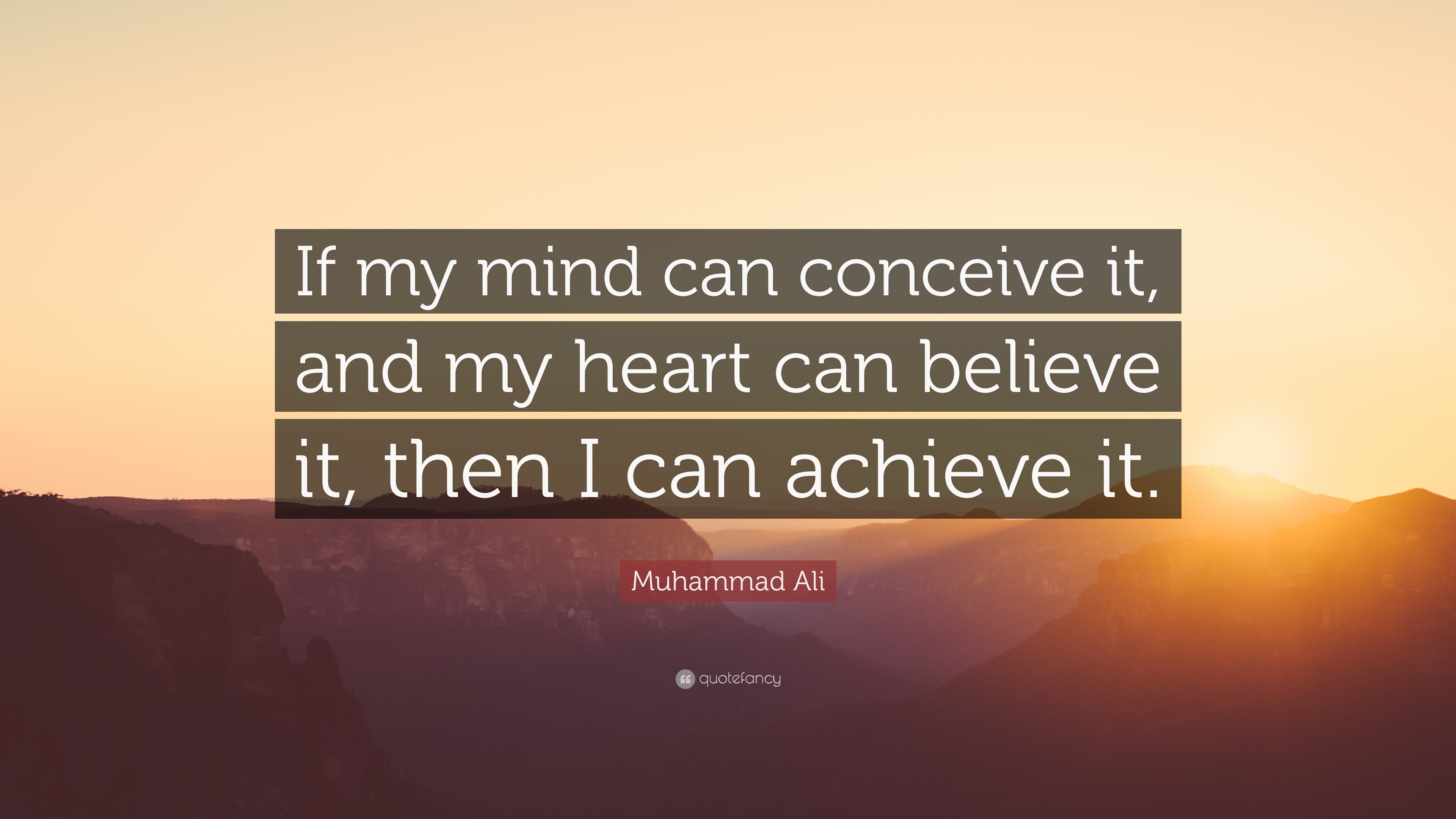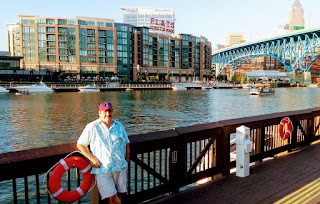Muhammad Ali: A Primer For Millennials.....
People that know me pretty well know that I'm not too thrilled to be the age that I am. But one part I enjoy is to be able to tell younger people about the way things were. Sometimes the stories of history just don't fit in a 90 second TV news piece. That's how it is today with Muhammad Ali.
I learned the news of his passing Saturday morning before I went to work. It really surprised me. I had heard the day before he had entered a hospital, and was listed in fair condition. But going from fair condition to no condition surprised me for a person that was larger than life, like Ali.
To say Muhammad Ali was an icon is like saying Donald Trump is controversial. A major understatement. During his life Ali was branded a celebrity, then scorned, a champion, then a loser, a traitor, then a patriot. Mostly though he was inspirational. Initially to Black America. then to America, and finally to the world.
In the coming days and weeks there will be far more talented people than myself trying to describe him. But let me try to relate some memories.
I remember my older sister actually knew about Cassius Clay before I did. Just like she knew about the Beatles before I did. I guess she was a pop culture expert at the time. As an amateur boxer, he won a gold medal in the 1960 Summer Olympics in Rome. But I don't remember it. I was either too young, or black and white TV didn't turn me on. But I do recall the lead-up to his first championship fight against Sonny Liston in 1964
In those days, boxing, especially for the heavyweight championship was a big deal. They were major celebrities. I used to be able to list all the champions back to the 1900's. Now I couldn't even tell you who it is, and could care less. At the time, there was no MMA, and professional wrestling was just a comedy show. Boxers were the gladiators of the day.
Clay didn't look, or act like a boxer. At the time, most boxers were muscle bound sluggers. Most weren't too intelligent. You wouldn't think they could spell "cat" if you gave them the C and the A. Clay was tall, sleek, fast, and quick. He was funny and would often recite poetry and speak in funny rhymes. Maybe he was the first rapper. Most of all he was brash and exuded confidence. Before the fight, he would say the burly Liston even "smelled like a bear", and after the fight he would send him to the zoo. But he beat the heavily favored Liston, and became the youngest heavyweight champion ever at age 22.
After he became champion, Clay officially changed his name to Muhammad Ali, and joined the Nation of Islam. He had been associated with that group in the early 60's, and was close with Malcolm X. The Nation of Islam initially rejected him because he was a boxer. But after he became champion, it was OK with them.
Ali certainly was not tolerant of injustice when he saw it. But he also preached peace and love, When the military came calling during the Vietnam era, Ali refused, saying, he "didn't have no quarrel with the Vietcong." He was listed as a conscientious objector. He said war was against the teachings of the Quran. He was stripped of his title, and banished for boxing from age 25 to age 29. But Ali won an appeal in the U.S. Supreme Court and returned to boxing in 1970.
He fought Joe Frazier to regain the heavyweight championship in 1971. The "Fight of the Century" Ali-Frazier I may have been the biggest sports story in the 1970's. Nothing else mattered that night in America, The fight was not on TV, and there was no pay per view at the time. You could go to a theater and pay for a closed circuit broadcast. But get this: the fight was not even broadcast on radio. I remember listening to the radio in my bedroom that night for round by round summaries. Ali lost that fight. But he later re-won the championship and defeated his nemesis Frazier.
Ali had many historic bouts in his career. There were two that were very important. At that time, championship boxing matches were held in Madison Square Garden in New York, or maybe Vegas. But Ali brought his championship fights to the world. he went to Zaire, Africa for the "Rumble in the Jungle", and beat the much younger George Foreman. Instantly, he became a hero to the entire continent of Africa. In 1975 he brought Ali-Frazier III, the "Thilla in Manilla", to the Philippines. He became a worldwide icon.
But to remember Ali as solely a boxer would be wrong. He became a global ambassador for peace. The United Nations would send him around the world, speaking his message of peace. During the Gulf War, Ali met with Saddam Hussein to negotiate the release of American hostages. Later, he was awarded the United States Medal of Freedom.
He was truly inspiration to Black America, especially kids. He taught them to be proud, and to work for what you want. He spoke out against injustice, but he didn't incite riots either. He seemed to be a happy medium between the dream speeches of Dr. Martin Luther King, and the vitriol of Malcolm X.
Ali retired from boxing in 1981 and was diagnosed with Parkinson's in 1984.As the disease progressed Ali remained active. He showed people with that disease not to to hide or be ashamed in any way. While it may have been hard for his fans to accept the once athletic Ali as trembling, and slow moving, he did not let that stop him. In 1996, a shaking Ali lit the Olympic flame in Atlanta. In 2012 he was asked to be the Olympic flag bearer in London. He was unable to, but his wife helped him to his feet, and he stood before the flag.
So it's very hard to classify him as any one thing. He was far more complicated than that. But you can say this - Muhammad Ali: American icon.
People that know me pretty well know that I'm not too thrilled to be the age that I am. But one part I enjoy is to be able to tell younger people about the way things were. Sometimes the stories of history just don't fit in a 90 second TV news piece. That's how it is today with Muhammad Ali.
I learned the news of his passing Saturday morning before I went to work. It really surprised me. I had heard the day before he had entered a hospital, and was listed in fair condition. But going from fair condition to no condition surprised me for a person that was larger than life, like Ali.
To say Muhammad Ali was an icon is like saying Donald Trump is controversial. A major understatement. During his life Ali was branded a celebrity, then scorned, a champion, then a loser, a traitor, then a patriot. Mostly though he was inspirational. Initially to Black America. then to America, and finally to the world.
In the coming days and weeks there will be far more talented people than myself trying to describe him. But let me try to relate some memories.
| One of the most famous photographs in sports. |
In those days, boxing, especially for the heavyweight championship was a big deal. They were major celebrities. I used to be able to list all the champions back to the 1900's. Now I couldn't even tell you who it is, and could care less. At the time, there was no MMA, and professional wrestling was just a comedy show. Boxers were the gladiators of the day.
Clay didn't look, or act like a boxer. At the time, most boxers were muscle bound sluggers. Most weren't too intelligent. You wouldn't think they could spell "cat" if you gave them the C and the A. Clay was tall, sleek, fast, and quick. He was funny and would often recite poetry and speak in funny rhymes. Maybe he was the first rapper. Most of all he was brash and exuded confidence. Before the fight, he would say the burly Liston even "smelled like a bear", and after the fight he would send him to the zoo. But he beat the heavily favored Liston, and became the youngest heavyweight champion ever at age 22.
After he became champion, Clay officially changed his name to Muhammad Ali, and joined the Nation of Islam. He had been associated with that group in the early 60's, and was close with Malcolm X. The Nation of Islam initially rejected him because he was a boxer. But after he became champion, it was OK with them.
Ali certainly was not tolerant of injustice when he saw it. But he also preached peace and love, When the military came calling during the Vietnam era, Ali refused, saying, he "didn't have no quarrel with the Vietcong." He was listed as a conscientious objector. He said war was against the teachings of the Quran. He was stripped of his title, and banished for boxing from age 25 to age 29. But Ali won an appeal in the U.S. Supreme Court and returned to boxing in 1970.
| Poster from Ali fight at the Richfield Coliseum. |
Ali had many historic bouts in his career. There were two that were very important. At that time, championship boxing matches were held in Madison Square Garden in New York, or maybe Vegas. But Ali brought his championship fights to the world. he went to Zaire, Africa for the "Rumble in the Jungle", and beat the much younger George Foreman. Instantly, he became a hero to the entire continent of Africa. In 1975 he brought Ali-Frazier III, the "Thilla in Manilla", to the Philippines. He became a worldwide icon.
But to remember Ali as solely a boxer would be wrong. He became a global ambassador for peace. The United Nations would send him around the world, speaking his message of peace. During the Gulf War, Ali met with Saddam Hussein to negotiate the release of American hostages. Later, he was awarded the United States Medal of Freedom.
He was truly inspiration to Black America, especially kids. He taught them to be proud, and to work for what you want. He spoke out against injustice, but he didn't incite riots either. He seemed to be a happy medium between the dream speeches of Dr. Martin Luther King, and the vitriol of Malcolm X.
Ali retired from boxing in 1981 and was diagnosed with Parkinson's in 1984.As the disease progressed Ali remained active. He showed people with that disease not to to hide or be ashamed in any way. While it may have been hard for his fans to accept the once athletic Ali as trembling, and slow moving, he did not let that stop him. In 1996, a shaking Ali lit the Olympic flame in Atlanta. In 2012 he was asked to be the Olympic flag bearer in London. He was unable to, but his wife helped him to his feet, and he stood before the flag.
So it's very hard to classify him as any one thing. He was far more complicated than that. But you can say this - Muhammad Ali: American icon.


Comments
Post a Comment